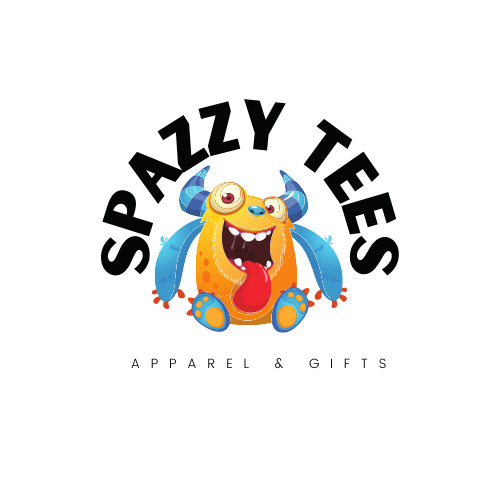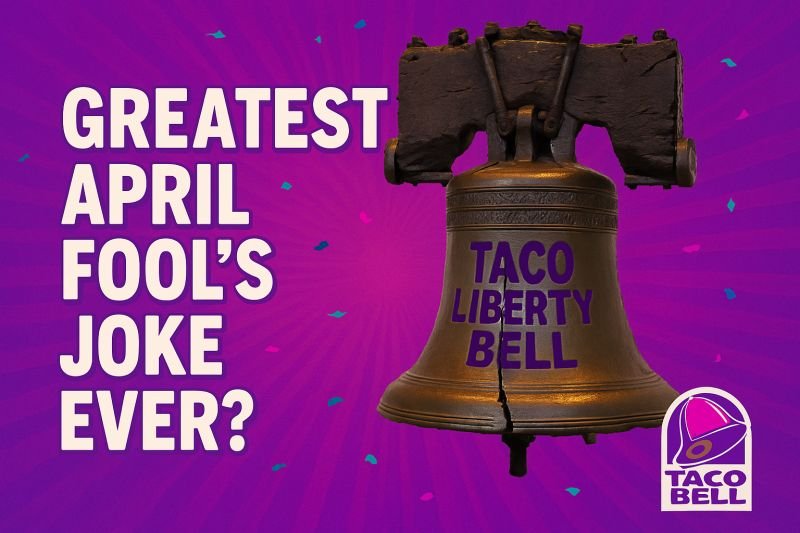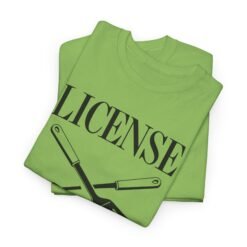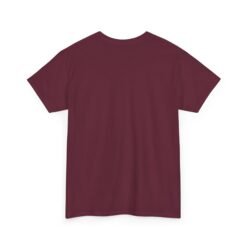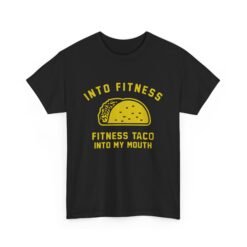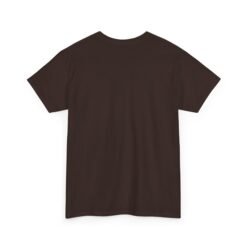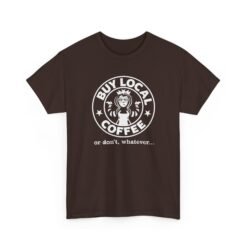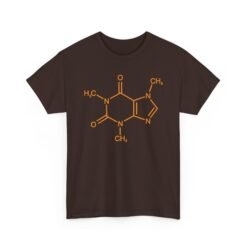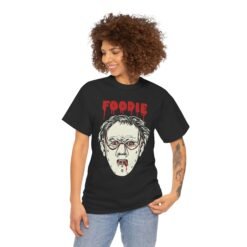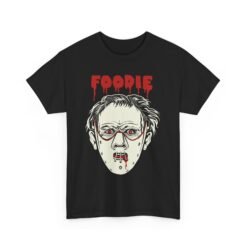Business History, Food and Beverage, Food Industry, Funny, Marketing History
When Taco Bell ‘Bought’ the Liberty Bell: The Legendary 1996 April Fool’s Prank
The Setup: How the Prank Started
In the mid-1990s, the fast-food industry was characterized by intense competition among brands vying for consumer attention. Taco Bell, known for its vibrant marketing strategies, sought to distinguish itself amidst this crowded landscape. As the date of the annual April Fool’s Day approached, the company recognized an opportunity not only to engage its existing customer base but also to attract new patrons through a clever and memorable prank. Their strategic decision to launch a humor-infused marketing campaign was heavily influenced by the growing importance of media exposure and consumer interaction.
The idea behind Taco Bell’s infamously bold April Fool’s stunt in 1996 was ingenious. The fast-food chain announced via a press release that it had acquired the Liberty Bell, the iconic symbol of American independence, and would be renaming it the “Taco Liberty Bell.” This audacious claim was precisely the kind of outrageous assertion that could spark significant conversation and draw public interest. Taco Bell’s marketing team understood the potential for such a stunt to captivate the media and the public alike, an essential factor as brands increasingly began to recognize the power of buzz marketing.
The success of this prank was not solely dependent on the whimsical nature of the announcement but also on the context of the time. In an era where sensational news stories could easily spread, Taco Bell knew that they could leverage this environment to their advantage. By presenting an absurd yet entertaining scenario, they ensured that the story would hit the headlines, capturing not just fleeting attention but also encouraging consumer discourse. Thus, Taco Bell set the stage for what would become one of the most memorable pranks in marketing history, effectively intertwining humor with brand messaging to achieve notable visibility. Through the lens of this April Fool’s Day prank, Taco Bell showcased its creative approach to marketing in a saturated industry.

The Announcement: Taco Bell ‘Purchases’ the Liberty Bell
On April 1, 1996, Taco Bell executed one of the most memorable and entertaining April Fool’s pranks in advertising history by announcing that it had purchased the iconic Liberty Bell. This whimsical press release captured immediate attention, stating that the Liberty Bell would be renamed the “Taco Liberty Bell.” This clever play on words seamlessly combined the fast-food giant’s branding with a symbol of American independence, breathing humor into a serious historical artifact.
The announcement ignited a flurry of media coverage across various platforms, from newspapers to television. Reporters were quick to comment on the bizarre nature of the claim, with many expressing disbelief that a major fast-food chain would attempt such a stunt. The press release, which was disseminated nationwide, highlighted Taco Bell’s boldness and creativity, drawing significant public interest. Many citizens were left scratching their heads and wondering if they had misread the news or fell victim to an elaborate joke.
This prank proved to be not just a moment of levity, but also a strategic move within Taco Bell’s marketing arsenal. The campaign ingeniously tapped into the intersection of humor and historical significance, positioning the company as a playful yet relevant participant in American culture. As the story spread, Taco Bell effectively utilized the ensuing conversation to enhance its brand visibility, showcasing the adage that any publicity, even if controversial, could be beneficial.
In the weeks following the announcement, the public response remained mixed, with a blend of amusement, confusion, and even anger from some patriotically-minded citizens. Ultimately, the clever juxtaposition of fast food and national pride left a lasting impression on American pop culture, illustrating the power of humor in marketing.

The Reactions: Public Response and Media Frenzy
The unprecedented prank executed by Taco Bell in 1996 elicited a wide spectrum of reactions from the public and media alike. When the fast-food giant announced its purchase of the iconic Liberty Bell, responses ranged from amusement to indignation. Many citizens found the announcement hilariously absurd, recognizing it as an April Fool’s joke. Social media platforms, though less developed at the time, saw a flurry of discussions among those who quickly caught on to the prank, showcasing the power of humor embedded in marketing strategies. However, not everyone was entertained; some individuals, especially among the older demographic, took the proclamation at face value and expressed outrage over what they perceived as a violation of a national treasure.
The media’s response was similarly varied, with significant coverage of the prank prompting major news outlets to run stories both supporting and criticizing Taco Bell’s audacity. Reports detailed reactions from historians and cultural commentators who decried commercialism’s encroachment on historical significance. These perspectives fueled discussions about the boundaries of corporate responsibility and ethical marketing strategies. Some commentators praised the prank as a clever marketing move that generated buzz; others viewed it as a disturbing trend of commodifying historical landmarks.
This incident also stirred broader conversations about consumer trust, and the responsibilities corporations have in maintaining authenticity. Many began to question how far marketing gimmicks could extend without crossing ethical lines. As the public dialogue progressed, it became clear that while the prank elicited laughter from some, it also posed serious inquiries into the implications of merging commerce with cultural heritage. Ultimately, this event marked a pivotal moment in popular culture, where humor, outrage, and contemplation intersected in a memorable illustration of marketing’s power and reach.

The Legacy: Lasting Impact of the Prank on Brand Marketing
The legendary 1996 April Fool’s prank, in which Taco Bell announced its purchase of the Liberty Bell, marked a significant milestone in the realm of brand marketing. This audacious campaign not only garnered immediate media attention but also set a precedent for the use of humor in advertising within the fast-food industry and beyond. By cleverly intertwining a historical icon with a playful narrative, Taco Bell successfully captured the public’s imagination, generating conversations that reverberated through social media and traditional news outlets alike.
This whimsical approach showcased the ability of humor to create memorable marketing moments that can resonate with consumers. In the years following this memorable event, various brands have emulated Taco Bell’s strategy, launching their own April Fool’s Day campaigns with varying degrees of success. Many companies began to understand that engaging humor could enhance brand recall and foster a positive emotional connection with their audience. Subsequently, this trend led to a wave of creative advertising that capitalized on playful pranks to engage consumers, further embedding April Fool’s Day as a pivotal day for marketing creativity.
Taco Bell’s prank was not merely a fleeting moment of amusement; it fundamentally shifted the brand’s identity. Capitalizing on the ensuing discussions, the company magnified its jovial brand persona, allowing it to stand out amidst an often overly serious fast-food market. The boldness exhibited in this campaign firmly positioned Taco Bell as a forward-thinking and approachable brand. By taking risks in their marketing strategies, Taco Bell subsequently solidified its reputation as an innovator in both product development and customer engagement, ultimately influencing its trajectory in a highly competitive landscape.
Food and Coffee
Food and Coffee
Business and Finance
“Buy Local Coffee, Or Don’t, Whatever” Unisex T-Shirt – Caffeinated Sass
Food and Coffee
☕🧪 Caffeine Molecule Unisex T-Shirt – Fuel Your Brain in Style
Food and Coffee
